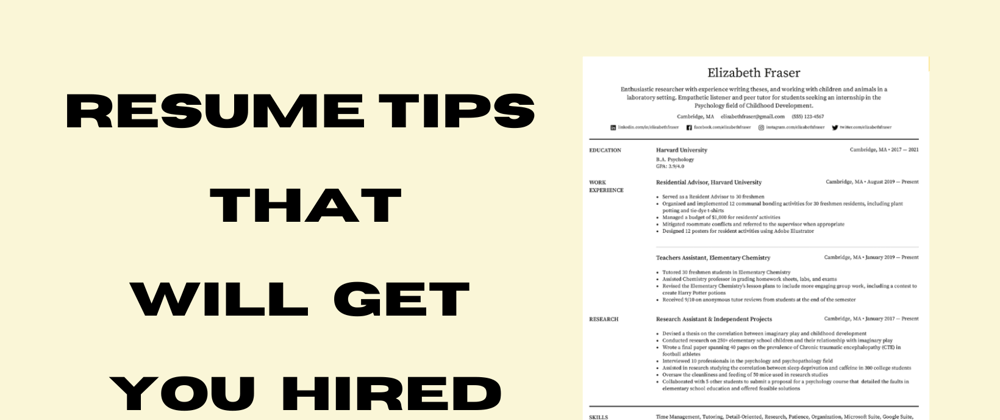Resume👩💻👨💻
Getting your resume right is crucial to land more interviews, thereby increasing your chances of getting hired.
A one-page resume with no smaller than 10 to 11 font-size is highly encouraged, which means you cannot just spill information.
Lets start by filling in these 5 important sections of your resume.
Header📹
- Add your name, contact number, email, and address.
- A photograph is NOT needed but you may add. Remember content is more important than aesthetics for a software engineering role!
- Add links to your portfolios – Website, LinkedIn, Github, etc.
Qualification 👀
- List your university name, degree, and timeline.
- Add your GPA
- Include your coursework only when it’s very specific to the job niche. In most cases, you should save that space – maybe use it to include another project.
Technical Skills
- Keep this section ~ 60% focused on the job niche, and rest can be generic.
- List your programming skills. Try to include some of the widely used and popular languages like Java/C#, Python, Javascript, C/C++ – only if you know it!
- List industry-standard libraries/frameworks that you are familiar with – OpenCV, React, Tensorflow, RxJava, etc.
- List popular development/SDL tools that you have used – IntelliJ, Matlab, Tableau, XCode, Jira, SVN(s), etc.
- Optionally, list the cloud services (PaaS, IaaS) – AWS, OpenShift, Azure, Heroku, etc.
Work Experience
- Starting with the most recent experience, list all your internships and full-time jobs (typically not more than 5).
- Include your job title/role and timeline.
- Describe your key tasks by creating ~ 2-3 bullet points for each company instead of adding a very long paragraph.
Projects
- List all projects that are most relevant to the job description.
- Add project name and a brief summary.
- Add “Hackathons” section to highlight my top hackathon projects and wins – companies often dig your passion to build projects outside your academics. But, you can also add them under the “Projects” section.
- A section for “Objective“ is NOT needed – it will just waste valuable space. Instead, attach a cover letter to your application.
Best practices🙌
- Know Your Niche
- Highlight Project(s) That Stand Out From Competition
- Keep It Crisp
- Add Measurable Data To Your Projects Summary
- Add Keywords
- Add Links To Important Portfolios
- Formatting & Grammar
- Proofread Your Resume
- Iterate On Your Resume
- Make Multiple Copies If Needed
- Refer To Successful Samples
Quick highlight of DOs and DONTs:
✅ one page resume that pops out
✅ highlight personal projects outside academics
✅ use bullet points
✅ add keywords
✅ add links to portfolios especially LinkedIn & Github
✅ proofread!
❌ long paragraphs
❌ spelling and formatting mistakes
❌ spamming keywords
❌ highlighting too many words or sentences
Conclusion 🎁
Software engineers are in demand – thanks to the digitalization of all sectors and continued technological revolution.
But, just because you hold a Computer Science (or related degree) and know how to design a software system or write a recommendation engine, the job won’t just walk up to you.
You will need a killer software engineer resume to stand out amongst your competitors! Hopefully, you will have one now!
In case you have any further queries pertaining to the Resume building tips above, please drop them in the comments section below and I’ll try to respond ASAP.
Thank you for reading :), To learn more, check out my other blogs.
If you liked this article, consider following me on Dev.to for my latest publications. You can reachout to me on Twitter,Linkedin and Github.
Keep learning! Keep coding!! 💛





















